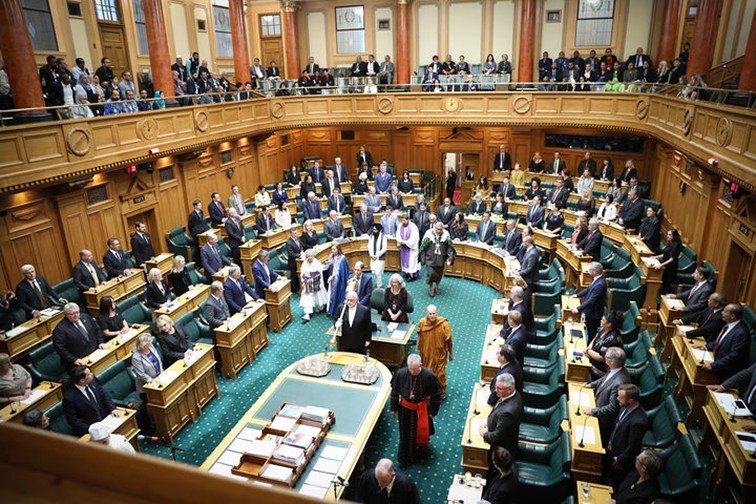The dogs have gone to the dogs
by Brian de Lore
Published 29 January 2021
A slap in the face to the thoroughbred code (NZTR) is how you would describe both the Greyhound and Harness nominations for board positions on the soon to be appointed TAB NZ board.
Recently I wrote about the ‘Decade of Disaster’ during which the racing industry endured poor administration with calamitous decision-making that has cost racing’s stakeholders a couple of hundred million dollars. This was an avoidable fall from the position of ‘cashed-up’ to technical TAB insolvency along with substantial debt to the bank.
The New Zealand Racing Board (NZRB), or the NZ Ruination Board as our leading trainer Murray Baker always described it, was crawling with incompetents who all but wrecked the industry. They collected massive salaries and board fees with no racing industry qualifications and then walked away (if not pushed) from the carnage with no accountability.
But have they walked? Apparently, not all! The Greyhound and Harness codes have decided in their infinite wisdom to align themselves with two former NZRB executives who were high up in the failed John Allen team and nominate them for positions on the TAB board to represent those codes. I’m calling it a disgrace.
…it can’t happen if the codes themselves are guilty of recidivist offending…
The New Zealand racing industry has an opportunity to put together a new board that will run this industry properly, but it can’t happen if the codes themselves are guilty of recidivist offending by regurgitating past failures with expectations of an entirely different result. I’m fed up with quoting Einstein, but he said it first.
You just don’t do it. It’s a no-no!
When former NZRB Chair Glenda Hughes was appointed CEO of Greyhounds NZ, it raised eyebrows, to say the least – did she know a Greyhound from an Afghan?. She appointed John Allen, who brought Stephen Henry with him via NZ Post and then Foreign Affairs. Jobs for the boys. Stephen Henry was the General Manager of Services at NZRB with no previous horse or wagering experience, and now he’s the nominee for the TAB board via Greyhounds NZ.
Harness NZ is even worse. Rod Croon was on the NZRB board as the harness nominee from 2012 through to 2018 and is currently the President of the Auckland Trotting Club. Their most recently appointed board member is the former NZRB financial controller Shaun Brooks, appointed by John Allen to NZRB in October 2015. He left NZRB suddenly amid some controversy about four years later, and now he’s the board nominee from Harness NZ.
Brooks was the financial controller at NZRB through the worst period of decline…
Brooks was the financial controller at NZRB through the worst period of decline and was the incumbent during the failure of NZRB to balance the books correctly when bonus bets were not accounted for in the final result.
The thoroughbred (NZTR) nominee is Jason Fleming, who has been in the racing game all his life, is an owner and breeder, a lawyer, and the director of a financial services company. He was the CEO of Hawkes Bay Racing and worked as a stable hand for John Wheeler many years ago, so he is a professional and knows the industry well from the coalface up.
It’s a given that the new board will require a diversity of skills. Is it not strange that the three codes would not have met to work together and collectively agree on the three nominees who can work together. In a perfect world, that’s what would have happened.
But it’s hard to imagine that anyone in the thoroughbred game would be happy about either Henry or Brooks, or followers of the other codes for that matter. Livid, yes, happy, no. This is a poor start in attempting to put together a TAB board for what will be a make or break couple of years with the industry in a dire financial situation post-NZRB.
The NZRB-John Allen and executives era needs to be exorcised into history
Why is this racing industry in New Zealand so inept? The NZRB-John Allen and executives era needs to be exorcised into history with no thought of looking back. What’s wrong with carefully chosen new people with new ideas?
Speaking by phone this week with a member of the board of Harness NZ, I asked the logical question of why they nominated Shaun Brooks? The answer came back, “the board rates him.” There was no point in continuing that discussion.
The performance of the TAB is much improved in the first five months of this season, due mainly to COVID19, and $10 million of the $45 million debt to the ASB has been repaid, but there’s still a long way to go, and the worldwide explosion in betting may yet return to pre-COVID levels – no one really knows where we are heading with the economy and betting levels, but we do know that nothing stays the same.
The involvement of the Department of Internal Affairs (DIA) in this process is flawed and problematic. They don’t have a clue what skills the board needs, and the process is wrong. A panel should have been briefed on the skillsets needed and then instructed to shoulder-tap the best people.
Calling for nominations through the DIA website will not attract the best candidates available. They need to be approached and cajoled to get the best mix of the right people.
It isn’t very reassuring for horse lovers dedicated to the racing industry to see this unfolding before them.
It isn’t very reassuring for horse lovers dedicated to the racing industry to see this unfolding before them. Thoroughbred racing is bigger than the other two codes combined and therefore is underrepresented in the new legislation. It’s a level playing field in Victoria with two thoroughbred reps and one each for the other two codes.
The problem in New Zealand is a lack of wagering knowledge. I decided to contact a retired CEO of Tabcorp who resides in Sydney and when employed, was paid A$1.2 million annually, for reasons of value – and not because he was shifted sideways after failing in a government department. He was remunerated according to his worth, and success was forthcoming.
He told me: “It’s going to be a mistake not to get a wagering expert. To me, a gambling expert is essential, particularly those that understand digital. You don’t pack the whole board that way, but you want to have diversity. The world is going to move, and the market will keep changing, as will the product.
“Achieving product parity and then having the agility to adjust to new products will be essential for them when taking a five or ten-year view. Playing catch-up football is essential, but that’s only phase one, and then you need people involved in both the executive and on the board that understand the gambling and wagering markets and how things move.
“You need someone that’s able to communicate with stakeholders and have a partnership-relationship with the racing industry.” – former Tabcorp CEO
“You need someone that’s able to communicate with stakeholders and have a partnership-relationship with the racing industry, but they also need to be strong influencers in that regulatory space to achieve parity and have the agility for the product parity as you advance.
“They also need to have a strong customer lense – what they call CRM, data buying, artificial intelligence – all that sort of stuff.
“It’s naive and ridiculous for New Zealand to sit here in isolation and say we are going to be successful by offering an inferior product to the rest of the world. If they respond and say ‘no, we have a good product,’ and we recognise we have to offer a world-class product, that will mean they will have to offer something better tomorrow – you don’t get there and say it’s done – it’s never done.
“The operating environment, the regulatory environment, the executive and the government environment has to be on their minds at all times.”
New Zealand is mainly devoid of the gambling/wagering experience required for a competent, pro-active board to enter the world of global wagering. The Aussies are good at it, it’s in their blood, and on a seven-person board, there should be room for at least one Australian with the know-how.
Minister Robertson and the DIA designated a process to put this board together. It’s wrong, and they need to alter it; the racing industry’s future depends on getting the good people.


